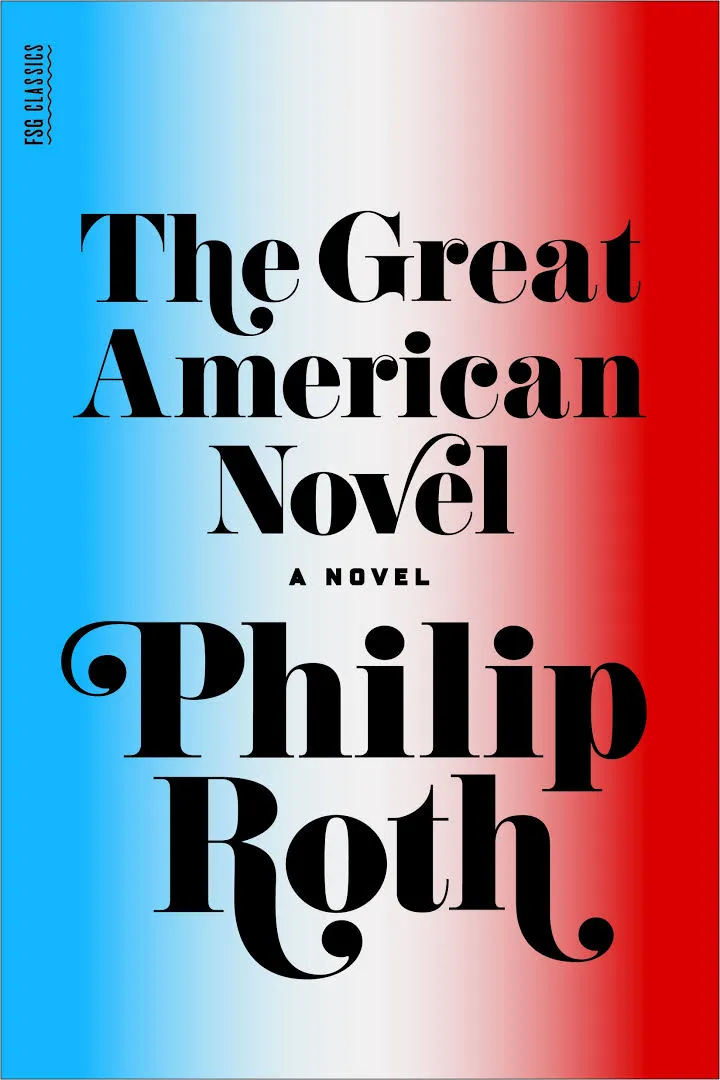
Posted on 07/07/2025 7:33:00 AM PDT by MtnClimber

Not to disappoint Philip Roth, but the fact that you title your book, The Great American Novel, does not make it a great American novel. My definition of Great American Novel is pretty straightforward: a first rate fiction, by an American, that tells us something large and expansive about the American experience. One other condition—it has to be readable.
A caveat upfront for the sensitive: seven of the ten novels listed below use the word “nigger,” not the infantile “n-word,” but the actual word itself. For the last many years, we have collectively refrained from using “nigger,” even in an explanatory context, as a form of dhimmitude to our woke overlords. By censoring books that use the word, we deny blacks their central role in the American experience. Time to get off our knees.
Here goes, starting from 10. Feel free to tell me what I got right and what I got wrong.
10—No Country for Old Men

Although many critics think Cormac McCarthy’s Blood Meridian the more likely candidate for Great American novel, I thought it too dark and cynical, not to mention bloody, to qualify. McCarthy’s No Country for Old Men has more heart. Those who have seen the Academy Award-winning film, know the book. The Coen brothers adapted the 2005 novel almost word for word. The book is not exactly a stroll in the park, but it gives the reader someone to root for.
9—Gone With The Wind
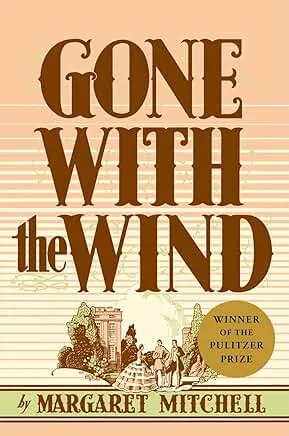
A huge bestseller when published in 1936. Margaret Mitchell’s Gone With the Wind has never fallen out of popularity. This sprawling, arguably feminist, epic of the Civil War-era South was ranked second only to the Bible in popularity as late as 2014. Readers have gone underground in the woke era, but the tale is too powerful to suppress. As the ever hopeful Scarlett reminds us at the end of the book and movie, “After all, tomorrow is another day.”
8—Grapes of Wrath
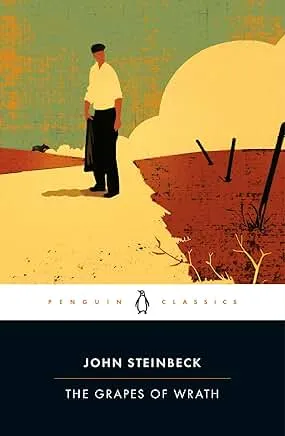
While hitchhiking one January long ago through the pre-homogenized South, I caught a ride out of New Orleans with some Mexican migrants of dubious legality. Soon after, they stopped for three runaway Texas girls who joined me in the back of the flatbed. Thinking I was having too good a time, the driver insisted we trade places. Later that might, while I was driving, a back tire fell completely off, and the spares all bounced out of the truck. After about two hours searching for the spares and replacing the missing tire, we warmed up around a huge bonfire. Said one of the girls to no one in particular, “Kiss my ass if this ain’t the Grapes of Wrath,” That’s how universal was the truth that Steinbeck captured in his 1939 novel, and thirty-some years later it still rang true even to teenage runaways.
7—Confessions of Nat Turner

William Styron deservedly won the 1968 Pulitzer Prize for this sympathetic, fictional recreation of the confessions of the real Nat Turner, the man who led a bloody slave insurrection in 1831 Virginia. No sooner did Styron win the Pulitzer, however, than critics countered with “William Styron's Nat Turner: Ten Black Writers Respond. The arguments boiled down to—how dare a white writer try to imagine how a black slave might have thought. The book has been largely memory holed ever since.
6—Absalom, Absalom

Although much of William Faulkner’s opus is unreadable or nearly so, Faulkner’s 1936 novel, Absalom, Absalom!, is not. It chronciles the hair-rising tale of an up-from- nothing plantation owner in Civil War-era Mississippi. Imagine a sweaty Gone With the Wind without a hint of glamor.
5—The Bonfire of the Vanities
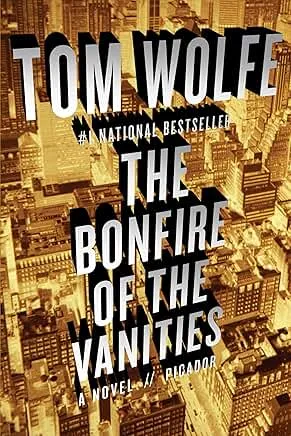
Distressed by the failure of contemporary novelists to capture the great carnival of American life, “Right Stuff” journalist Tom Wolfe decided to fill the void. He did so masterfully in this prophetic epic of life gone haywire in 1980s New York City. Although comic in tone, The Bonfire of the Vanities captures the emerging racial dynamic that would paralyze urban America for years to come. Skip the movie version, the worst botch of a good book in memory.
4—Moby Dick
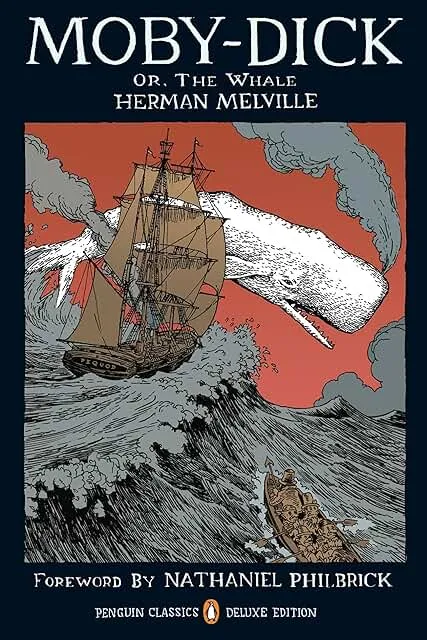
For years, I quietly concealed the darkest possible stain on the soul of any American studies Ph.D.—I had never read Moby Dick. A few years ago, as a form of bucket list atonement, I dove into this 1851 classic. I speed read through the whale particulars but otherwise a worthy read. What no one had told me was the book was comic. Maybe, I thought, no one had actually ever read it. To put the plot in contemporary context, imagine Donald Trump as the white whale and the Democratic leadership as Captain Ahab. Spoiler alert: the whale wins.
3—American Pastoral
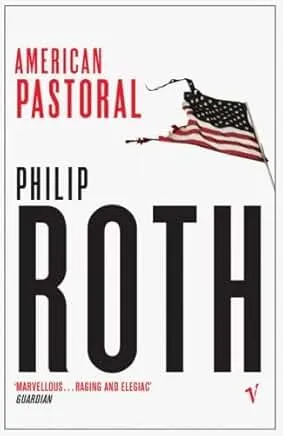
Set In Newark, NJ—the setting for my 2023 non-fiction book Untenable—the 1997 American Pastoral is the late Philip Roth’s best candidate for Great American novel. I confess to being partial in that we tell much the same story, namely how the political and racial upheavals of the 1960s derailed the American dream. Roth would never admit it, but his Newark experience turned him, like multiple thousands of us, conservative.
2—Huckleberry Finn

I was halfway through Ron Chernow’s newest blockbuster Mark Twain when I decided to call it quits. Writing through the George Floyd era, the skittish Chernow was exactly the wrong biographer for the job. Instead of letting Huck and Jim float down the Mississippi, Chernow continually stops the voyage to dissect their understanding of race and class. For the record, Ron, calling a “slave” an “enslaved person” adds nothing to the conversation but syllables. Twain was a great observer of human nature, but he was first and foremost a humorist. By the way, gas in Hannibal two weeks ago was $2.49 a gallon. I recommend the Becky Thatcher diner. To the generations coming up forbidden to read Huckleberry Finn, don’t expect to see Becky working the register.
1—Lonesome Dove

When you are sad to see the book end after 800 or so pages, you know you have read one hell of book. Larry McMurtry’s 1985 classic has it all: great chacters, epic setting, brilliant diaolgue, high drama, ample humor, and a little romance. Unlike many rcent westerns, it resepects the characters, their vision, and the country that gave them free play. The mini-series is excellent too.
Nine of the ten authors are men yet today most of the novels published are by women. An accurate novel about the transformation in America where women’s desire to be men would be interesting but it wouldn’t be published today.
LOL
Not eve GOW?
There is a freckle somewhere in there too!


Gene Wolfe: the last great American writer of the English language
“Last of the Mohicans” by James Fenimore Cooper
“Two Years Before the Mast” Amen and Amen.
Moby Dick: I finally slogged all the way through it a couple of years ago, and boy, was it ever a slog!
“Peace Like a River” by Leif Enger is a truly American experience—Minnesota and North Dakota—and has some of the most beautifully-crafted prose I’ve ever run across. The guy can write.
I stand corrected.
sorry, just to clarify, I read Lonesome Dove....now I’m reading Streets of Laredo. Then I’m going back and goign to read through the entire series in succession.
I don’t think Lonesome Dove needs any companions. It’s a masterpiece.
But, since it has companions, I’m going to read them :)
agree entirely! Man, did I weep at the end!
I tried to read it. Finally gave up after, I don’t know, about 250 pages.
MARK
After I learned of Hemingway’s close friendship with Che and how Che would invite Hemingway to be entertained by Che shooting men, women and even children, I just can’t read his stuff anymore.
“I haven’t read anything by Phillip Roth. What should I know about his works?”
Lizavetta, you haven’t missed a thing.
Excellent choice. Unfortunately, this great novel is not widely known and thus, greatly underappreciated.
The only Faulkner novels that I've found to be any more "difficult" than Absalom, Absalom due to their stream of consciousness writing are The Sound and the Fury and As I Lay Dying. Most of his other novels, such as A Light in August, The Unvanquished, etc. are quite readable, and all of them are well worth reading. I would agree that Absalom, Absalom! is probably the best of the lot, with A Light in August as a runner-up.
Pinging myself for later!
Although an avid reader I too have attempted and failed Moby Dick three times. Sorry, it’s boring to me!!
Disclaimer: Opinions posted on Free Republic are those of the individual posters and do not necessarily represent the opinion of Free Republic or its management. All materials posted herein are protected by copyright law and the exemption for fair use of copyrighted works.